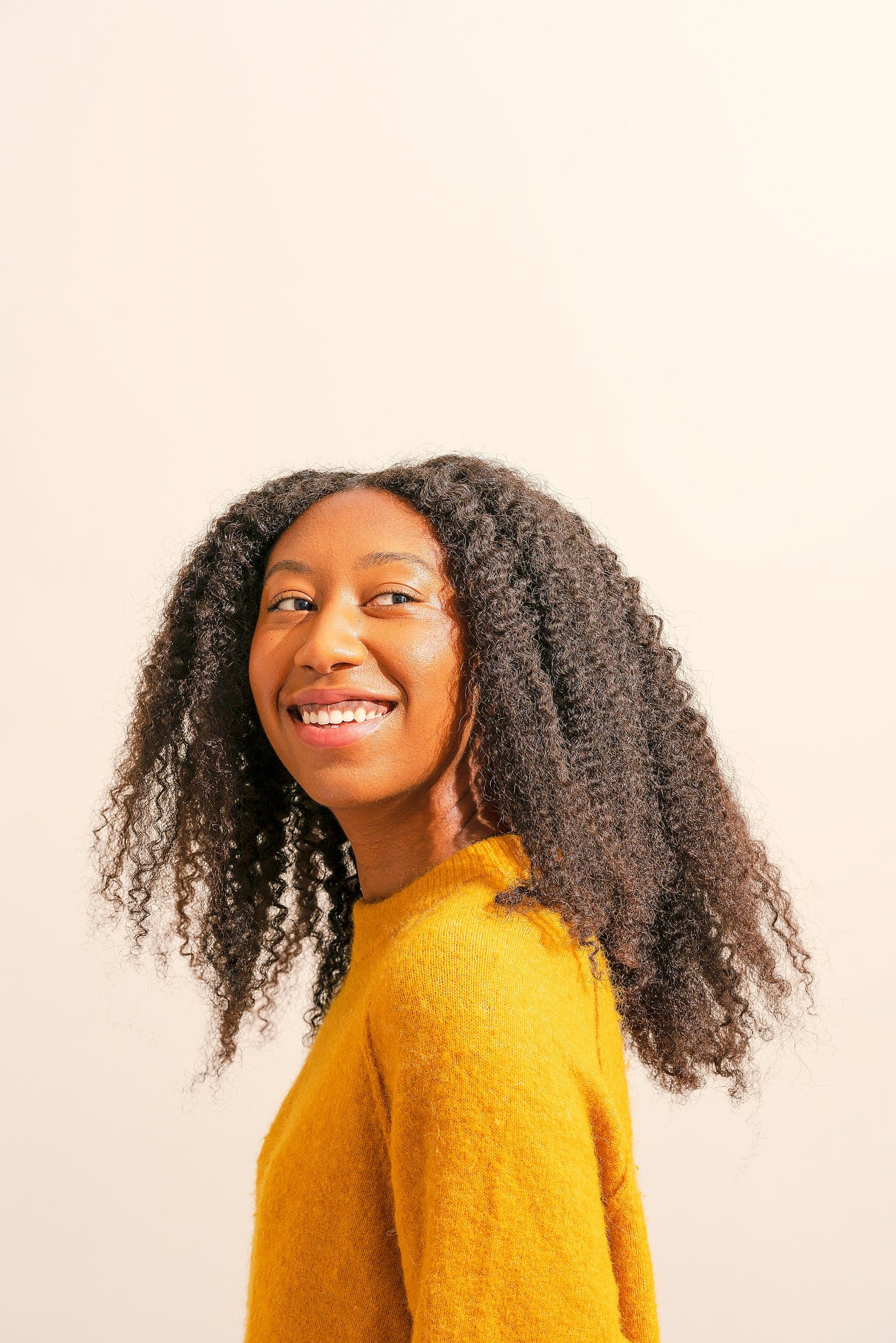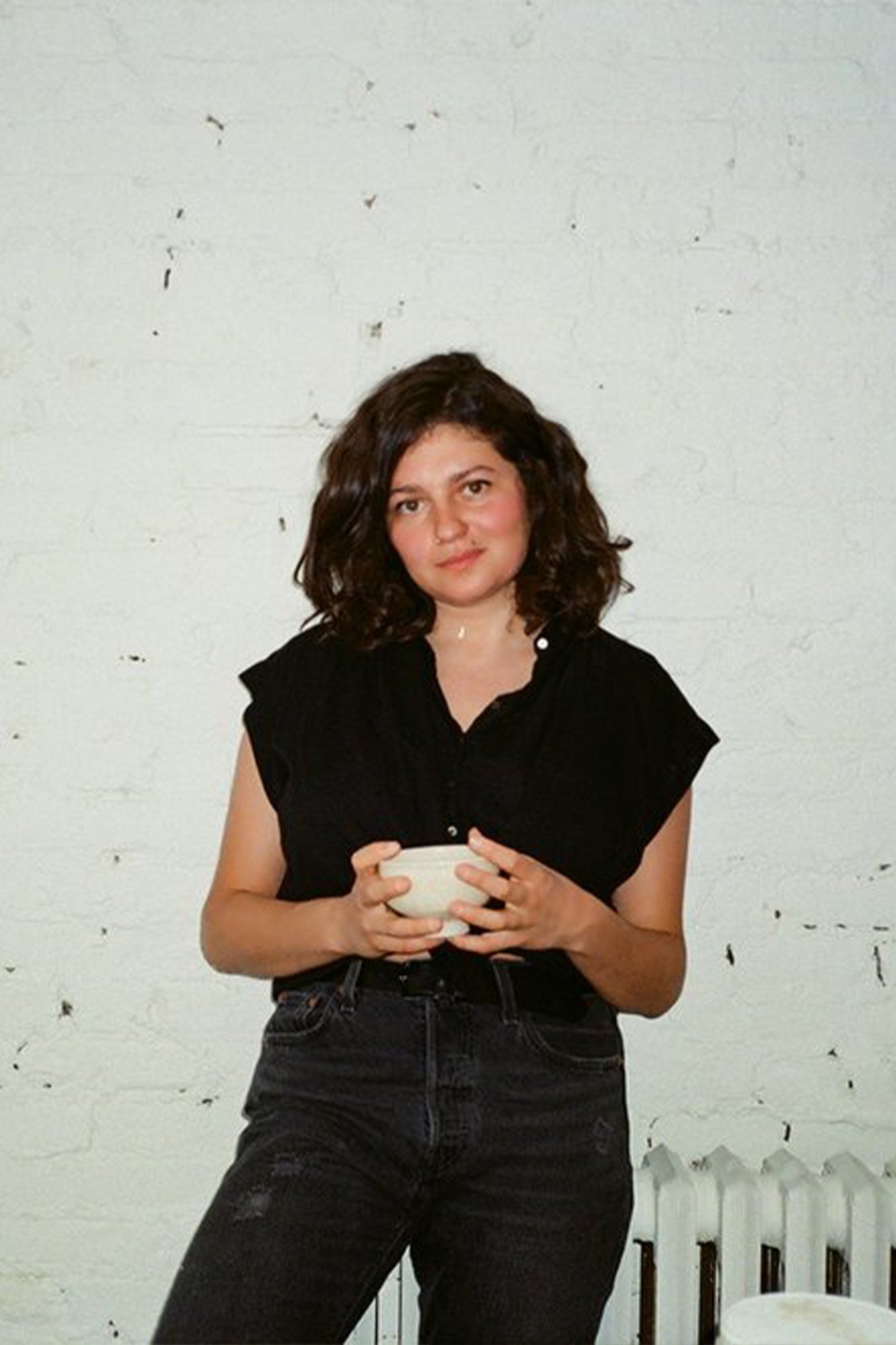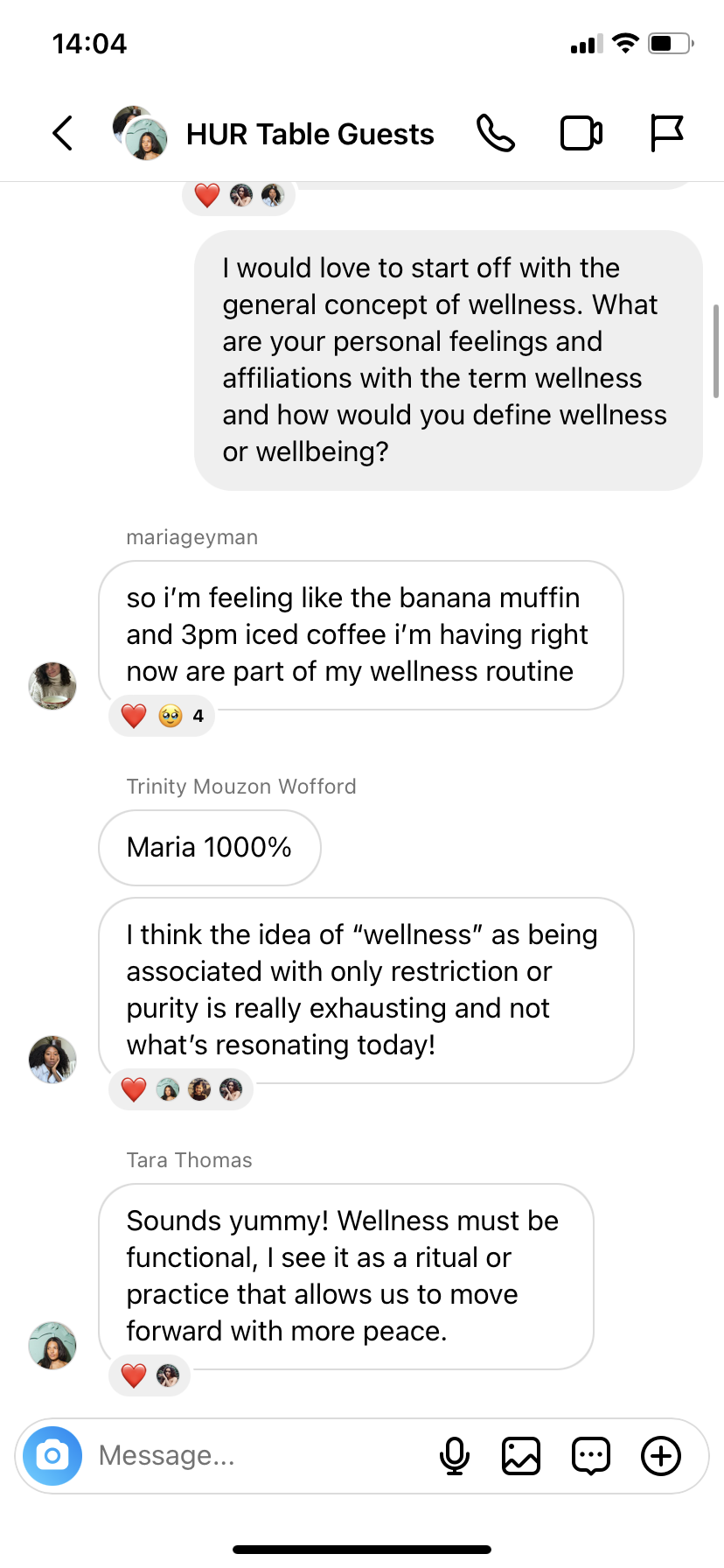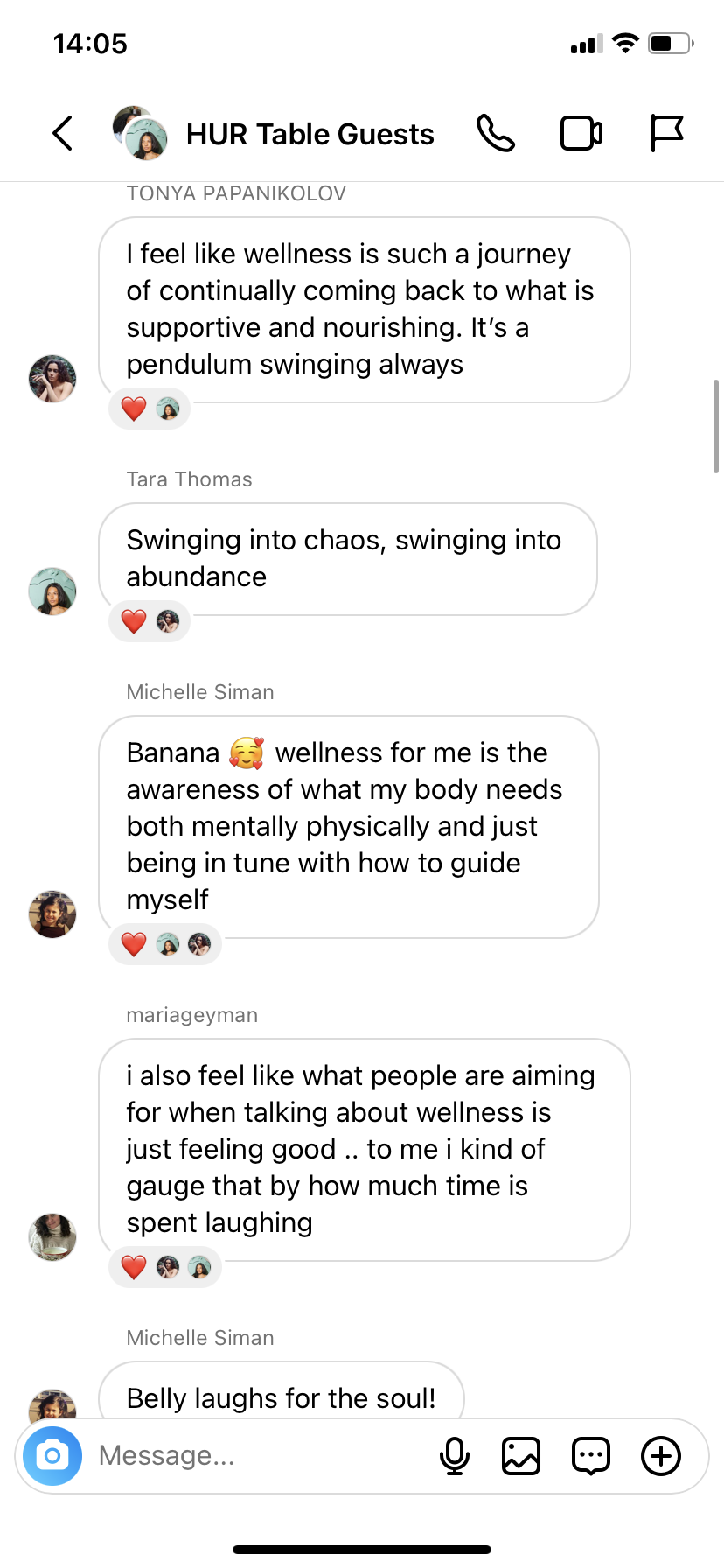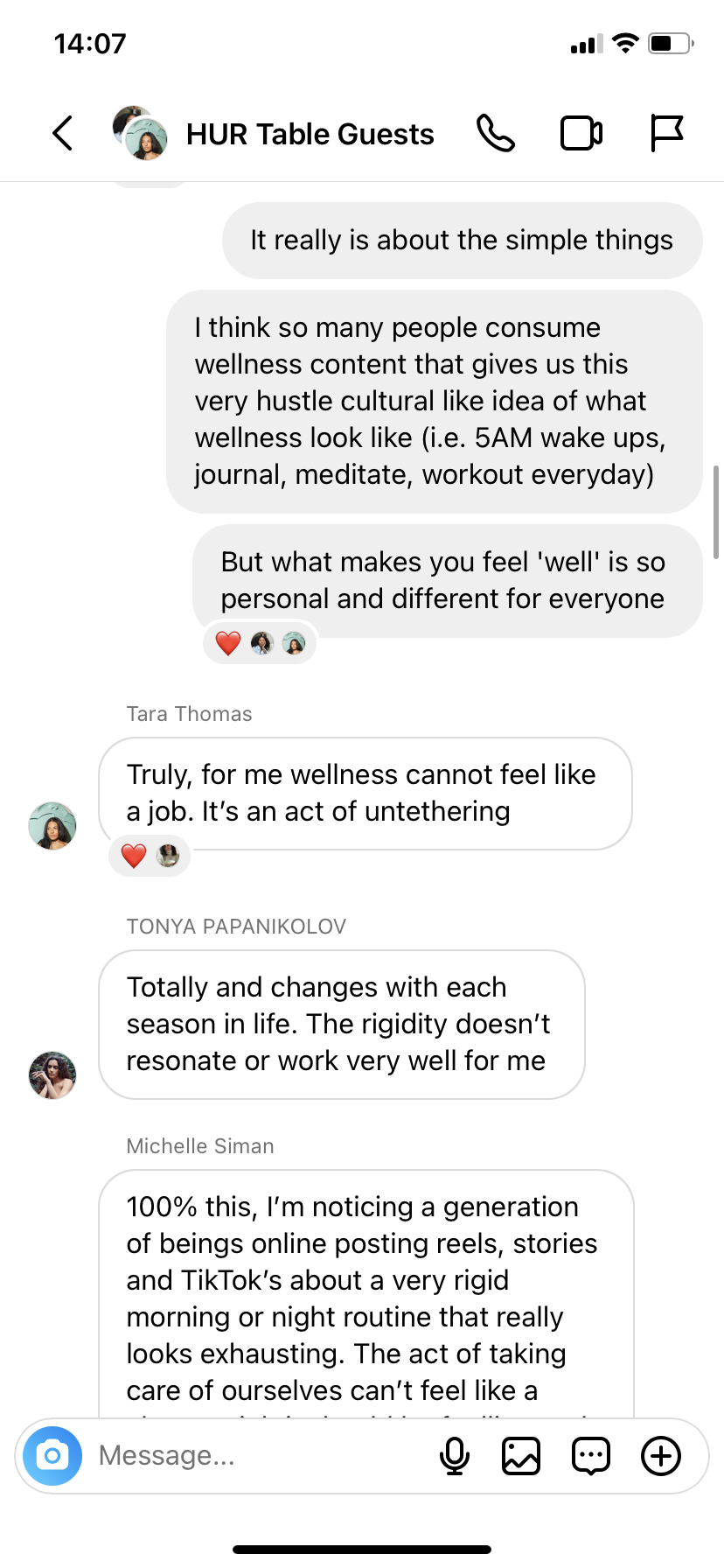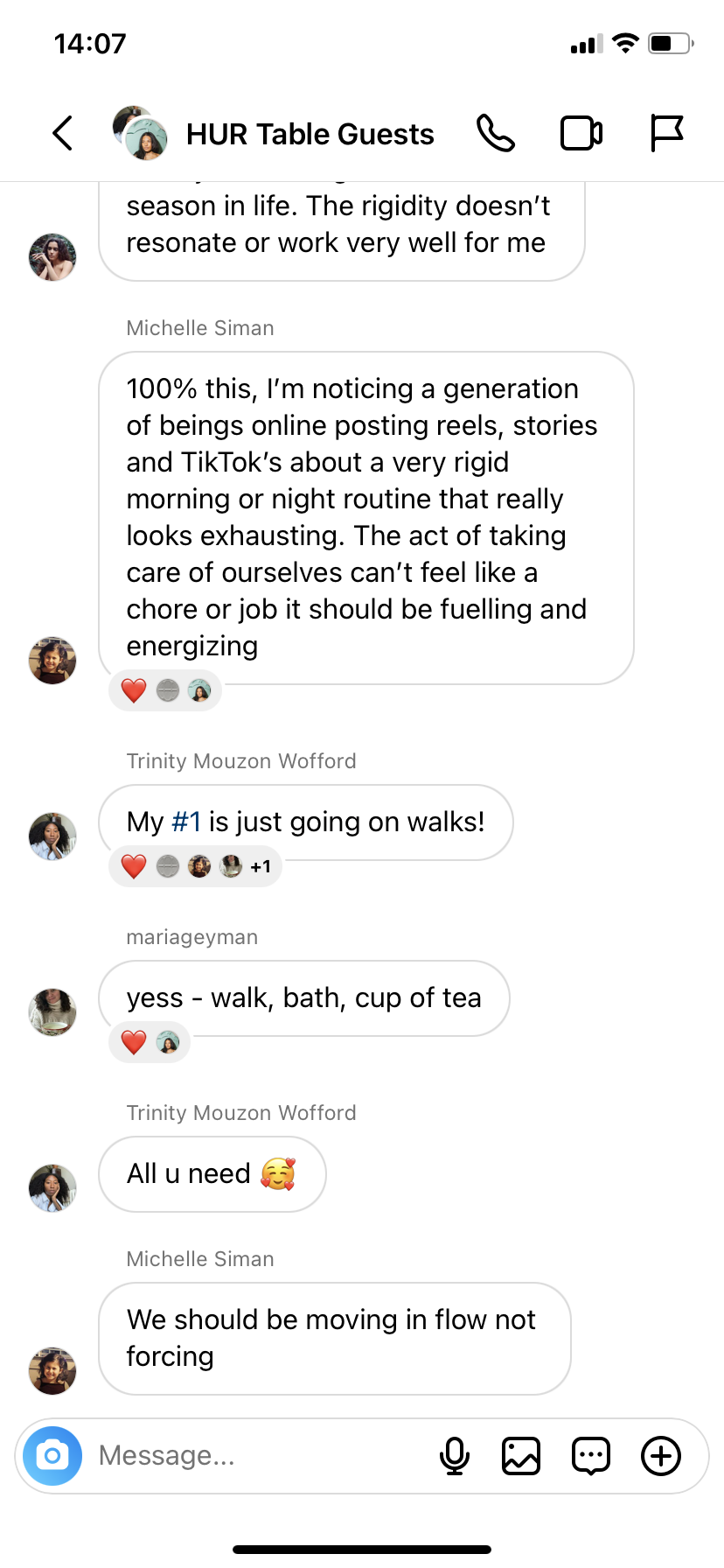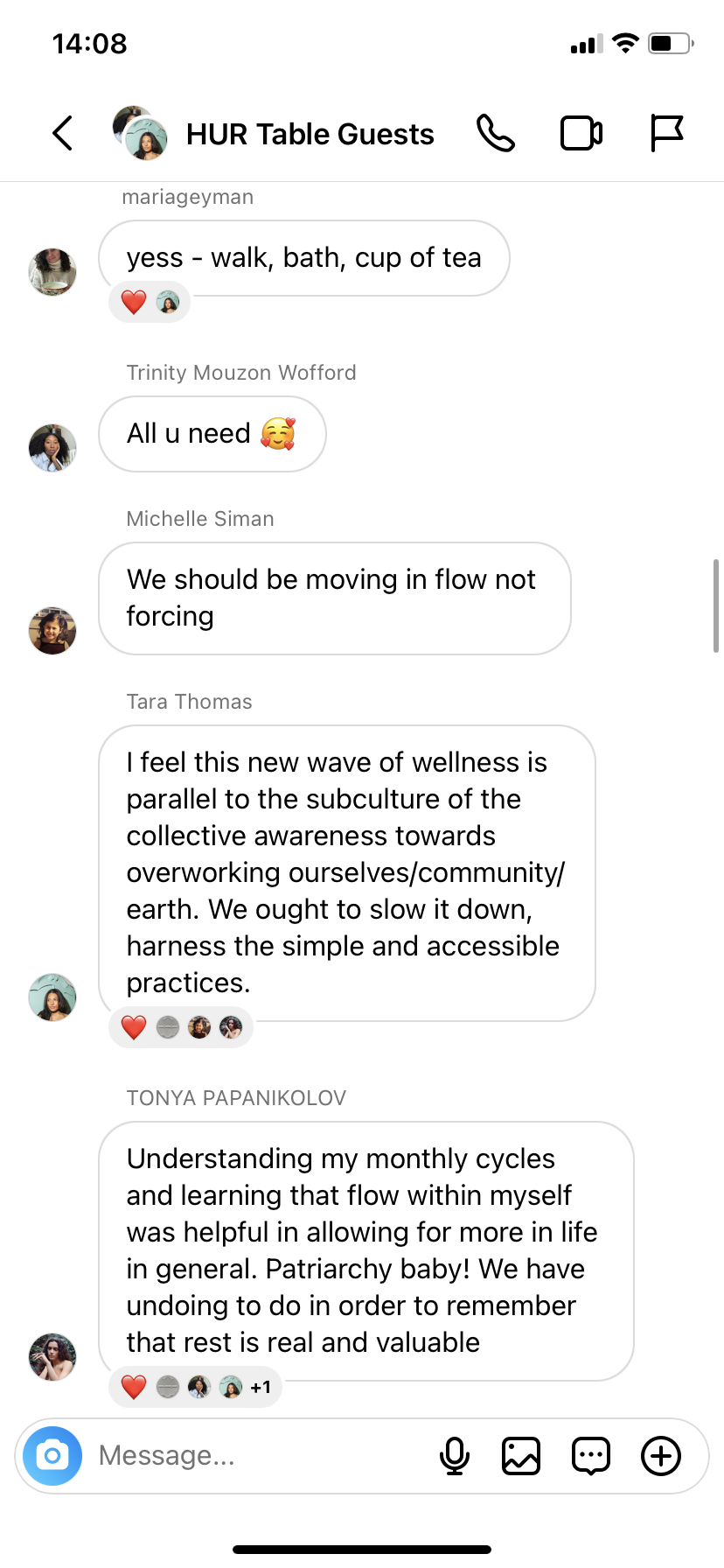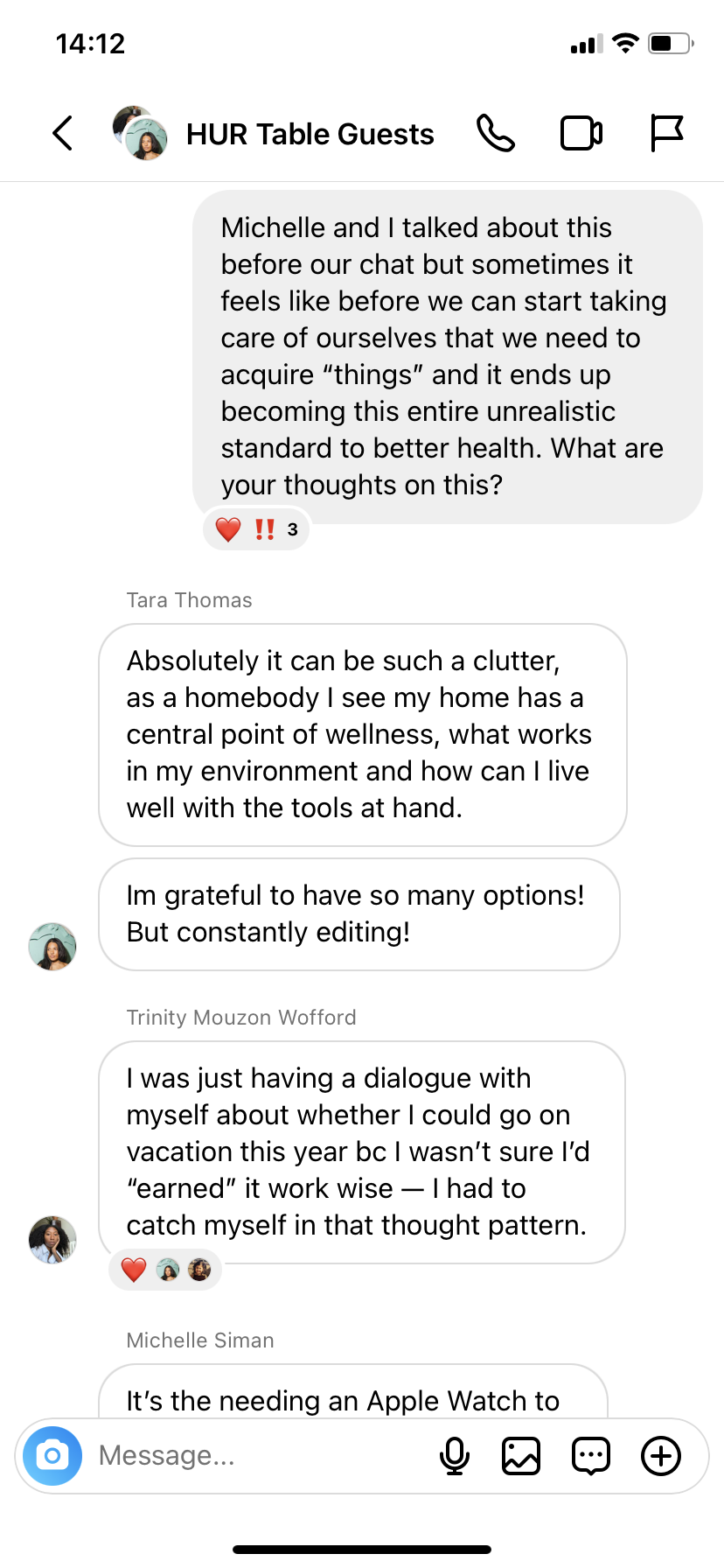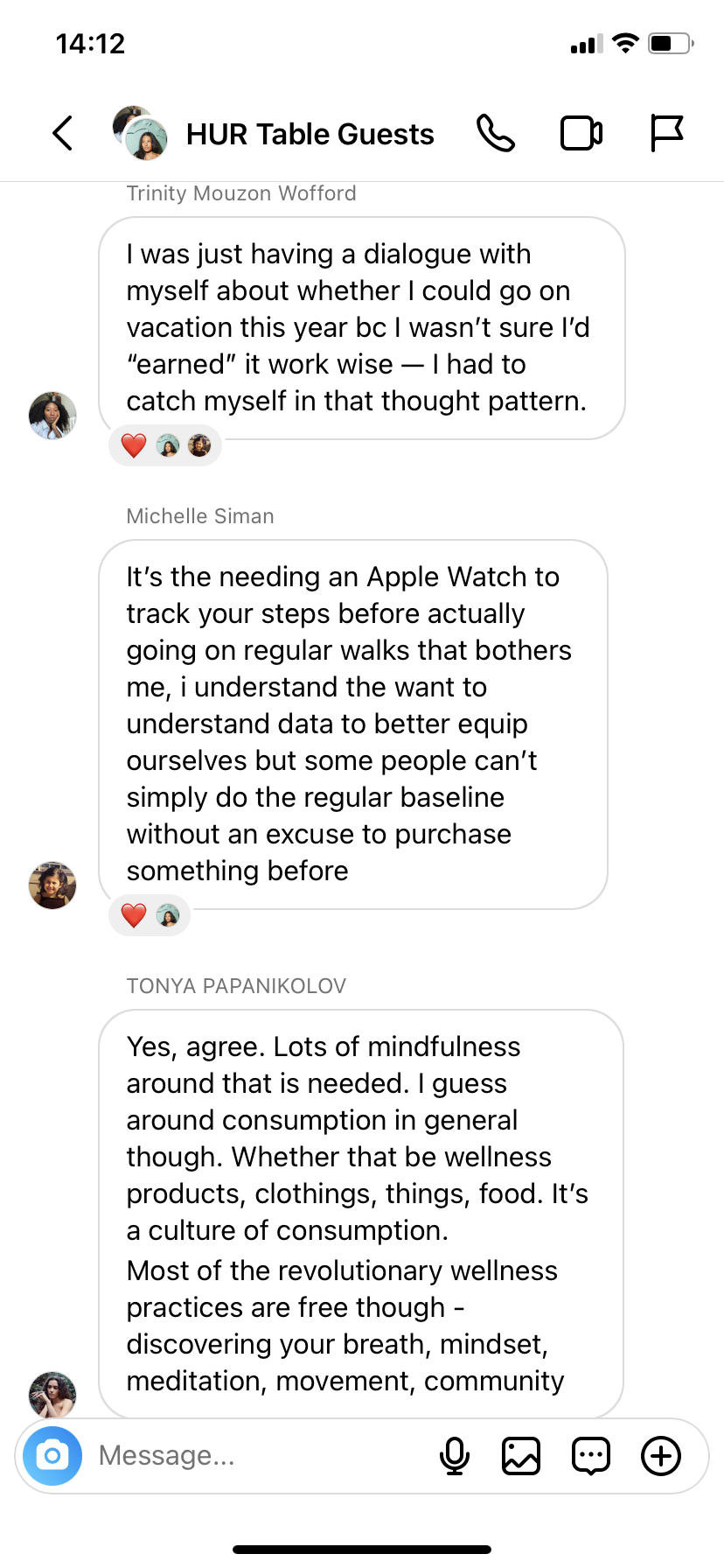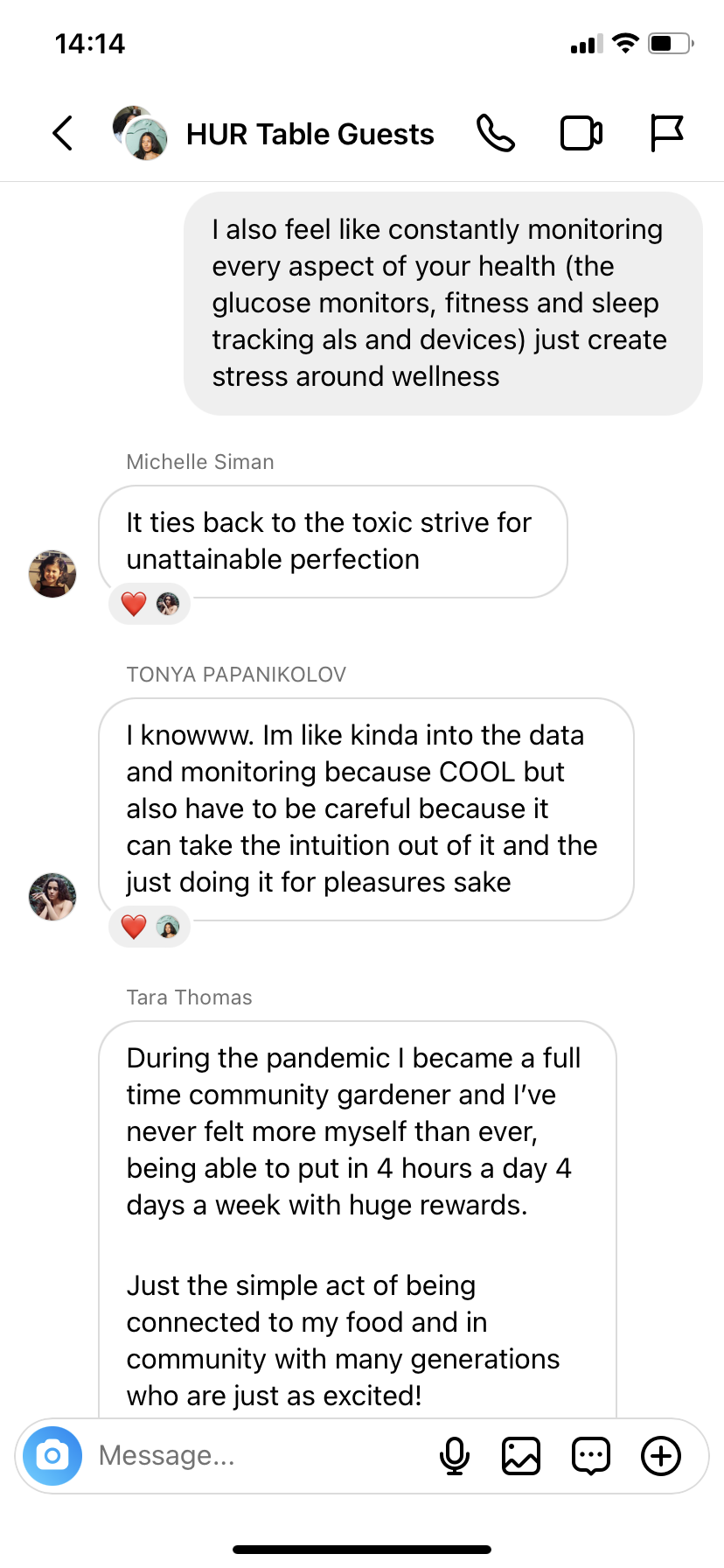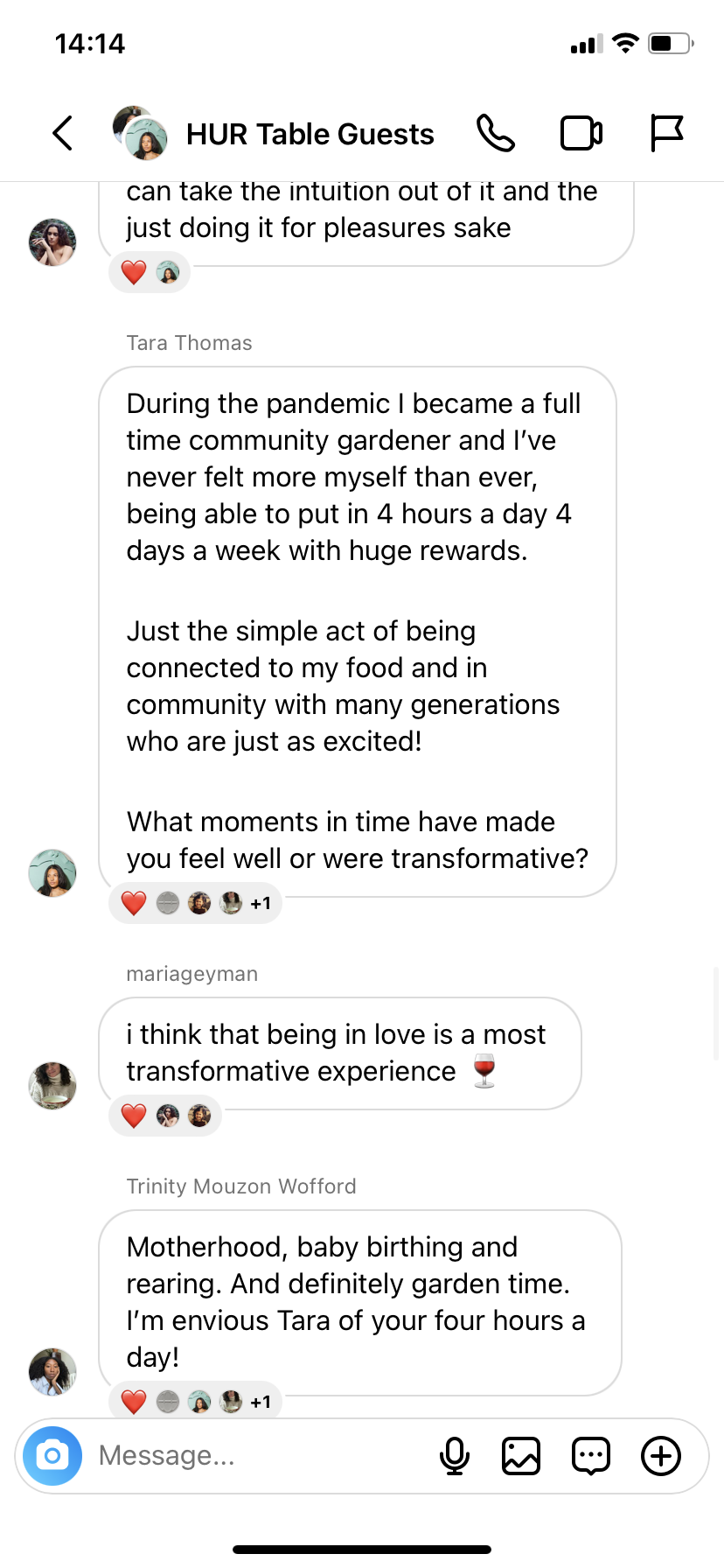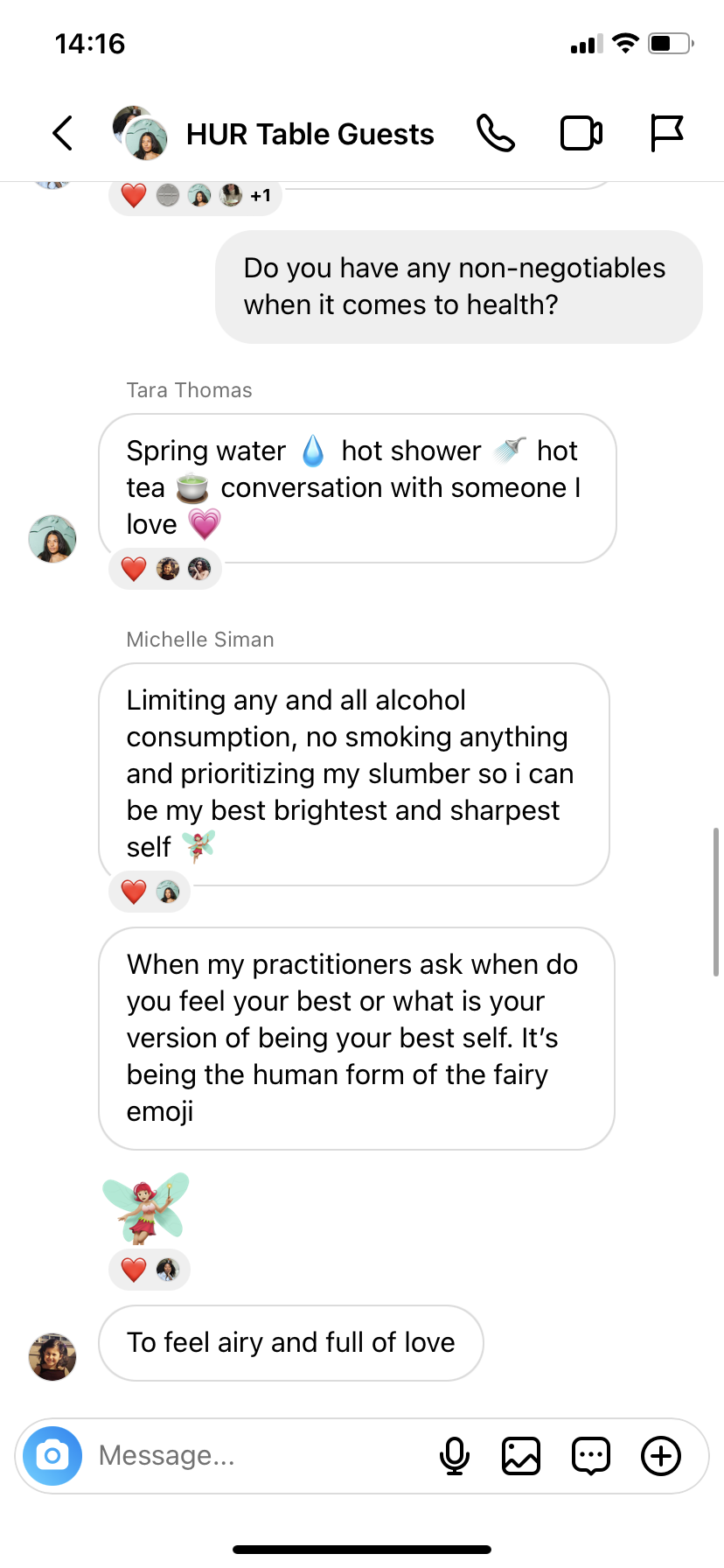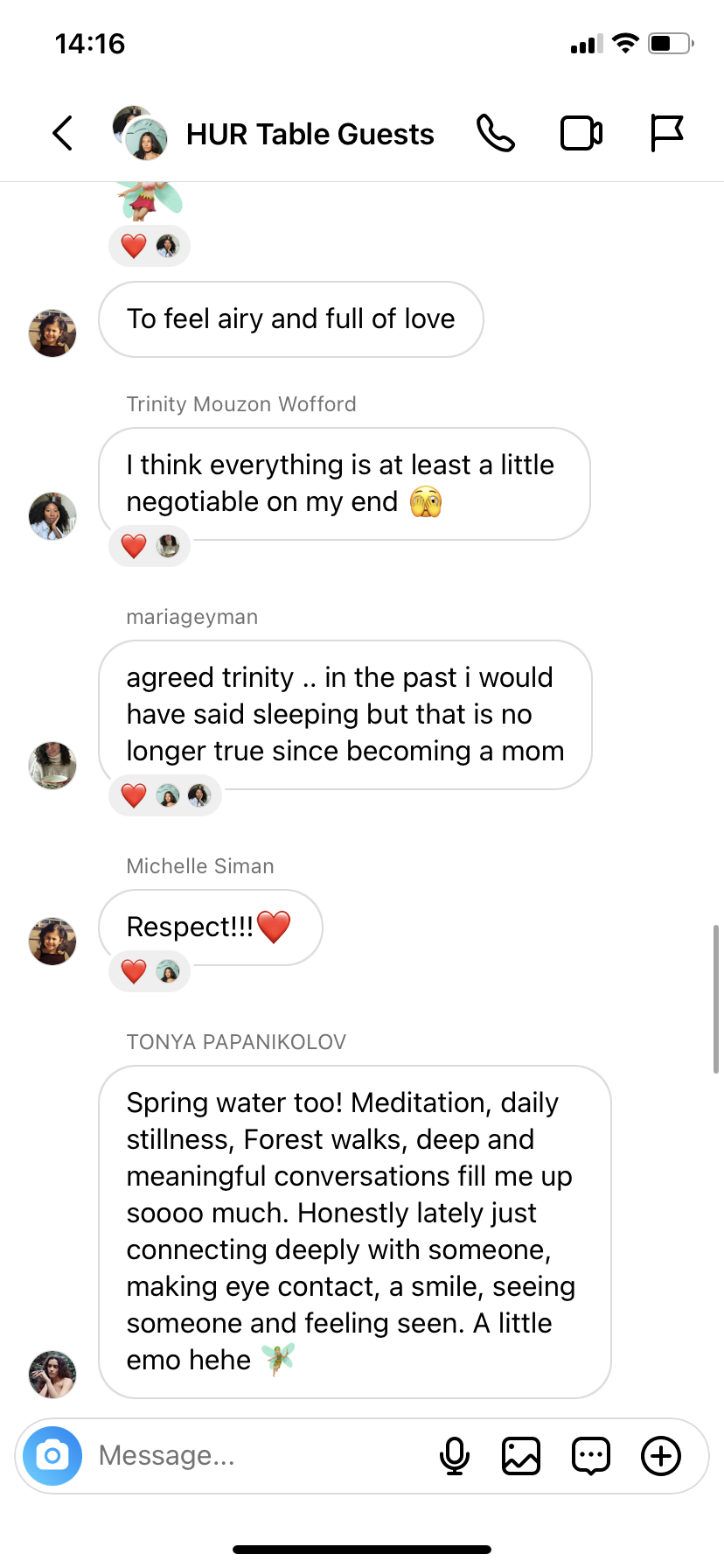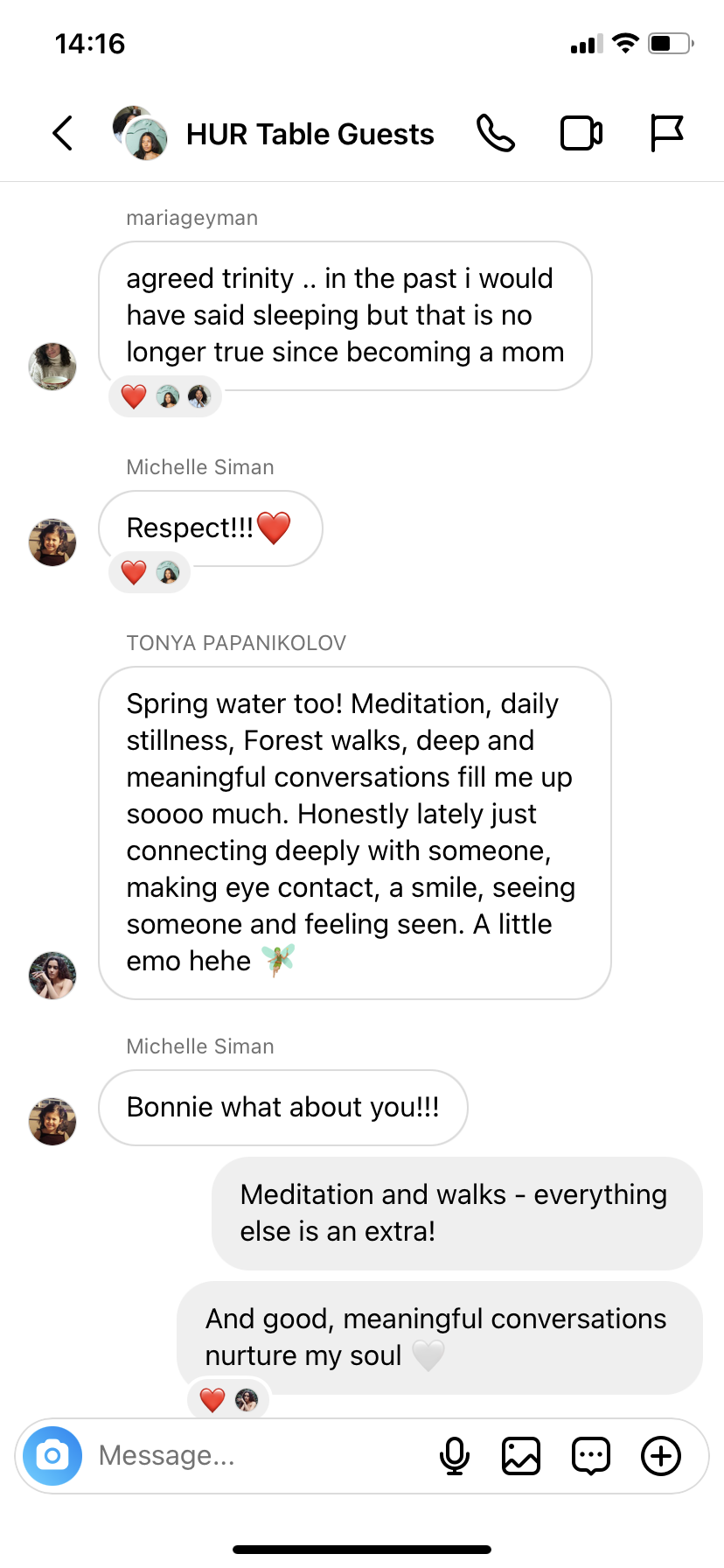Are We Losing Our Health in the Pursuit of Wellness?
Are We Losing Our Health in the Pursuit of Wellness?
with Michelle Siman, Trinity Mouzon Wofford, Tara Thomas, Tonya Papanikolov and Maria Geyman
By HURS Team
The $4.3 trillion global health and wellness industry is thriving. With a growing interest from both consumers and brands, the market is expected to increase to almost $7 trillion by 2025. We’re investing more in our health than before, but are we feeling any better? There’s an endless stream of new nutrition, fitness and health brands, our social media feeds are flooded with tips and tricks from health ‘experts’ and there’s a wealth of products that will improve your overall wellbeing. But what’s the cost of being this ‘best version’ of ourselves?
Social media has created a blueprint for what health looks like, and it’s often exclusionary and toxic. It started with the ‘That Girl’ phenomenon which promoted the unattainable ideal of waking up at 5AM, daily journaling sessions, meditations, ‘clean’ eating, working out and hitting at least 10.000 steps a day. And while some of these practices may help people feel their best, the culture around wellness quickly became one of ticking boxes over focusing on what actually makes you feel good. This fixation with being the best version of yourself – while measuring up against someone else’s high reel on social media – is anything but realistic and leaves many burned out instead of feeling their best. It’s accompanied by a consumption-first culture, making us believe we need to acquire things to start taking care of ourselves. Let’s not forget, leading us from one trend to the next, overcomplicating the concept of wellness and promoting the belief that we need to acquire products to achieve health grows the wellness industry’s bottom line.
Luckily, there are a handful of people and brands working across health, food, beauty and supplements who are taking a different approach. We wanted to hear their take.
MICHELLE SIMAN
Michelle Siman is the founder of Lemon Water, a podcast and platform that explores all areas of wellness and growth. Michelle is also a creative consultant who works with brands in the wellness and lifestyle space, she is also currently the head of marketing for Rainbo.
TRINITY MOUZON WOFFORD
Trinity Mouzon Wofford’s belief that wellness and superfoods should be approachable and inclusive led to the launch of a wellness brand of her own. Golde launched in 2017 with just one product, the signature Turmeric Latte Blend. Since then, the business has become a household name in the health space. Golde’s product offering has expanded too. The brand now sells a variety of supplements, plant-based skincare masks and matcha and latte blends and is available at a range of stockists including Target.
TARA THOMAS
New York-based Tara Thomas is a chef and the founder behind Breaking Bread NYC – a grassroots non-profit initiative. Creating community and connection through food, Thomas takes a holistic approach to wellbeing. Through her plant-based meals the New York-based chef is changing how marginalized communities can gain access to quality meals and nutrition. Throughout her career, Thomas has worked with a range of brands including Glossier, Stella McCartney and furniture designer Sarah Ellison.
MARIA GEYMAN
Dr. Maria Geyman is a board-certified naturopathic doctor. She works with patients on issues like natural approaches to fertility, skin health, digestion, and mood. Dr. Geyman is also the founder behind Masha Tea. The brand is built on the belief that a world in which people carve out time for tea is a healthier, more chic, and peaceful place. Masha Tea has partnered with The Noguchi Museum, Whitney Museum, La Reunion Studio and Ace Hotel.
TONYA PAPANIKOLOV
Tonya Papanikolov is the Founder & CEO of Rainbo, a B-Corp-certified functional mushroom brand. She is a holistic nutritionist, entrepreneur, Kundalini yoga teacher and studies integrative medicine focusing on mind-body-spirit healing.
We wanted to know more and asked five industry insiders what wellness means to them, how social media plays into how people relate to health and wellbeing and whether taking care of ourselves has increasingly become focused on acquiring things.


